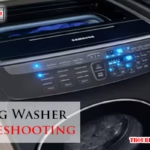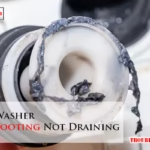Equalizer jacks are vital for RV stability. They keep your vehicle level and secure.
Troubleshooting them can be tricky, but it’s essential for a smooth trip. Equalizer jacks are an important part of any RV. They ensure your vehicle stays balanced, providing comfort and safety. But, like any mechanical system, they can have issues.
Understanding common problems and how to fix them will save time and frustration. This guide will help you identify and solve common equalizer jack problems. From electrical issues to mechanical failures, we will cover the basics. Keep reading to learn how to keep your RV’s equalizer jacks in top shape and enjoy stress-free travels.
Common Leveling Issues
Dealing with Equalizer jacks can sometimes be challenging. Knowing common leveling issues helps address these problems quickly. Below, we discuss the most frequent issues users face and provide solutions to fix them.
Uneven Ground
Parking on uneven ground can cause trouble for your Equalizer jacks. They might struggle to stabilize your vehicle correctly. Here’s how you can handle this:
- Look for the most level spot available before parking.
- Use leveling blocks under the wheels for extra support.
- Double-check the ground for any large rocks or debris.
If the ground remains too uneven, consider repositioning your vehicle. This prevents extra strain on your jacks.
Jacks Not Extending
If your jacks refuse to extend, there could be several reasons why:
| Possible Cause | Solution |
|---|---|
| Low Hydraulic Fluid | Check and refill hydraulic fluid levels. |
| Electrical Issues | Inspect the wiring for any faults or damage. |
| Blocked Mechanism | Ensure there is no debris blocking the jacks. |
Regular maintenance can prevent many of these issues. Keep an eye on fluid levels and wiring to ensure your system stays functional. If problems persist, contacting a professional might be necessary.
Electrical Problems
Electrical problems with equalizer jacks can be frustrating. They often stem from a few common issues. By identifying these, you can quickly resolve the problem and get back to enjoying your RV adventures.
Blown Fuses
Blown fuses are a frequent cause of electrical issues. Check the fuse box first. Look for any fuses that appear burnt or broken. Replace them with new ones of the same rating.
Using the wrong fuse can cause further damage. Always keep spare fuses on hand. This simple step can save you a lot of time and trouble.
Battery Issues
Batteries are another common culprit. Check the battery terminals for corrosion. Clean them with a mixture of baking soda and water. Ensure the connections are tight and secure.
If the battery is dead, charge it fully before use. Consider testing the battery voltage. A healthy battery should read around 12.6 volts. Anything lower may indicate a problem.
Sometimes, the battery itself may need to be replaced. Ensure it is compatible with your equalizer jack system. Regular maintenance of your battery can prevent many issues.
| Problem | Solution |
|---|---|
| Blown Fuse | Replace with the same rating fuse |
| Corroded Battery Terminals | Clean with baking soda and water |
| Loose Connections | Tighten the connections |
| Dead Battery | Recharge or replace the battery |
- Always check the fuse box first.
- Maintain battery terminals to avoid corrosion.
- Use a voltmeter to check battery health.
- Keep spare fuses and batteries on hand.
- Regularly inspect electrical connections for wear.
- Use the correct fuse rating to avoid damage.
- Test battery voltage periodically.
- Ensure battery compatibility with your system.
Hydraulic System Issues
Equalizer jacks are essential for stabilizing your RV. They rely on hydraulic systems to function smoothly. But, hydraulic system issues can disrupt their operation. It’s important to identify and address these issues quickly.
Low Fluid Levels
Low fluid levels can impair the performance of your equalizer jacks. Check the hydraulic fluid reservoir regularly. If levels are low, refill with the recommended hydraulic fluid. Low fluid levels may indicate a leak. So, inspect the system for any signs of leakage.
Hydraulic Leaks
Hydraulic leaks can lead to poor jack performance. Look for fluid puddles under the RV. Check the hoses and connections for any signs of wear. Replace damaged parts to prevent leaks. Regular maintenance can help you avoid these issues. Ensure all connections are tight and secure.

Credit: rvsnappad.com
Mechanical Malfunctions
Mechanical malfunctions in equalizer jacks can cause serious problems. These issues can disrupt your travel plans. Understanding and fixing these malfunctions is essential. Two common problems are stuck jacks and worn-out parts.
Stuck Jacks
Stuck jacks are a frequent issue. This happens when the jacks refuse to extend or retract. Several factors can cause this problem. Lack of lubrication is a common reason. Dirt and debris build-up can also cause jacks to stick.
- Inspect for any visible dirt or debris.
- Clean the jacks regularly to prevent build-up.
- Ensure that the jacks are well lubricated.
If cleaning and lubricating do not work, you might need to check for mechanical blockages. A small object might be stuck in the mechanism. Use a flashlight to inspect the jacks closely. If you cannot fix it, call a professional for help.
Worn Out Parts
Over time, parts of the equalizer jacks can wear out. This can lead to malfunction. Common parts that wear out include gears, bolts, and springs. Regular inspection can help you spot worn-out parts early.
| Part | Signs of Wear |
|---|---|
| Gears | Grinding noise, difficulty in movement |
| Bolts | Rust, loose or missing bolts |
| Springs | Loss of tension, visible damage |
Replace worn-out parts as soon as possible. Delaying replacement can cause further damage. Use parts recommended by the manufacturer. This ensures compatibility and longevity.
Control Panel Errors
Encountering control panel errors on your equalizer jacks can be frustrating. These errors can halt your operations and cause delays. Understanding common control panel errors is essential for quick resolution. This section will cover error codes and non-responsive controls.
Error Codes
Error codes are the control panel’s way of telling you something is wrong. Each code corresponds to a specific issue. Here are some common error codes and their meanings:
| Error Code | Meaning |
|---|---|
| E01 | Low hydraulic fluid |
| E02 | Jack not fully retracted |
| E03 | Electrical connection issue |
Refer to your manual for a full list of error codes. Knowing these codes helps in diagnosing problems fast.
Non-responsive Controls
Sometimes, the control panel may not respond. This can be due to several reasons:
- Power issues: Check if the control panel is getting power.
- Wiring problems: Inspect the wires for any damage or disconnection.
- Software glitches: Restart the control panel to reset the system.
If the controls remain non-responsive, consult a professional technician. A quick inspection can save you from prolonged downtime.
Understanding and troubleshooting control panel errors ensures your equalizer jacks work efficiently. Keep this guide handy for quick reference. Your operations will run smoother with less downtime.
Preventive Maintenance
Preventive maintenance is crucial for keeping your equalizer jacks in top condition. Regular checks and proper care can extend their lifespan and ensure smooth operation. Below, we discuss two key aspects of preventive maintenance: regular inspections and proper lubrication.
Regular Inspections
Regular inspections help identify potential issues before they become serious problems. Follow these steps for effective inspections:
- Visual Checks: Look for any visible damage or wear on the jacks.
- Operational Testing: Test the jacks by extending and retracting them. Listen for unusual noises.
- Connection Points: Ensure all bolts and screws are tight and secure.
Perform these inspections at least once a month. Keeping a log of your inspections can help you track any recurring issues.
Proper Lubrication
Proper lubrication ensures that your equalizer jacks move smoothly and reduce wear. Follow these guidelines:
- Use the recommended lubricant for your specific jacks.
- Apply lubricant to all moving parts, including the piston and joints.
- Wipe off any excess lubricant to prevent dirt buildup.
Lubricate your jacks every three months or as recommended by the manufacturer. Regular lubrication can prevent rust and corrosion, extending the life of your jacks.
When To Seek Professional Help
Equalizer jacks can be tricky to fix on your own. Sometimes, the problem is too big or complicated for a quick fix. Knowing when to call a professional can save time and prevent further damage.
Signs Of Severe Issues
Some problems need expert attention. Here are signs that you should seek professional help:
- Unusual Noises: Grinding or squealing sounds when operating the jacks.
- Slow Response: Jacks take too long to extend or retract.
- Leaks: Hydraulic fluid leaks around the jacks or control unit.
- Electrical Failures: Jacks do not respond to control panel commands.
- Physical Damage: Bent, broken, or misaligned jacks.
Choosing A Reliable Technician
Picking the right technician is important. Here are tips to help you choose:
- Check Credentials: Verify their qualifications and certifications.
- Read Reviews: Look for feedback from other customers.
- Ask for References: Request contact details of previous clients.
- Get Quotes: Compare prices from different technicians.
- Warranty: Ensure they offer a warranty for their work.
Here is a quick comparison table to help you evaluate technicians:
| Criteria | Technician A | Technician B | Technician C |
|---|---|---|---|
| Credentials | Certified | Not Certified | Certified |
| Reviews | 4.5 stars | 3 stars | 4 stars |
| References | Available | Not Available | Available |
| Quote | $100 | $80 | $120 |
| Warranty | 1 Year | 6 Months | 1 Year |
Remember to choose a technician who fits your needs and budget. This way, you ensure your equalizer jacks are in good hands.

Credit: rvsnappad.com

Credit: www.youtube.com
Frequently Asked Questions
What Causes Equalizer Jacks To Malfunction?
Equalizer jacks can malfunction due to low hydraulic fluid, electrical issues, or worn-out parts.
How Do You Reset Equalizer Jacks?
To reset equalizer jacks, turn off the power, wait a few seconds, and then turn it back on.
Why Are My Equalizer Jacks Not Extending?
Jacks may not extend due to low hydraulic fluid, blocked lines, or electrical problems.
How Often Should I Maintain Equalizer Jacks?
Check and maintain equalizer jacks every six months. This ensures proper function and longevity.
Can I Manually Retract Equalizer Jacks?
Yes, you can manually retract equalizer jacks using the manual override switch or a hand pump.
Conclusion
Solving equalizer jack issues can seem tricky, but it’s manageable. Follow these tips to troubleshoot common problems. Regular maintenance prevents many issues. Always check connections and fluid levels. Listen for unusual sounds. Keep an eye on warning lights. Simple steps lead to smoother operations.
Don’t ignore small glitches. They might grow bigger. Ensure safety first. Seek professional help if needed. Proper care extends your jack’s lifespan. Enjoy more reliable performance. Happy travels!





